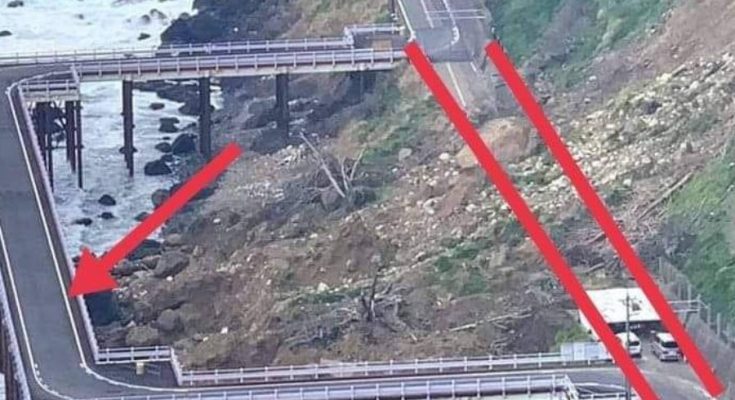Japan is renowned for its innovative and practical designs, often leaving the world in awe of its ability to solve complex challenges with creative solutions. This reputation extends beyond technology and into the realm of infrastructure, where Japanese engineers continue to set standards in efficiency and resilience.
One striking example of this ingenuity can be found in Fukui, a region prone to frequent landslides. The area’s engineers were faced with the daunting task of safeguarding a road section and its adjoining bridge, both of which were regularly impacted by the natural disaster.

The Challenge: Battling Nature’s Fury
Landslides are a common occurrence in Fukui, thanks to the area’s mountainous terrain and heavy rainfall. These unpredictable natural events pose a significant threat to roads and bridges, often rendering them unusable and disrupting daily life.
For engineers, the task wasn’t just about repairing damages but finding a lasting solution that would allow infrastructure to coexist with the challenging environment.
The Ingenious Solution
The engineers implemented a design specifically tailored to protect the bridge and road from landslides. Using a combination of structural reinforcements and strategically placed barriers, they created a system that redirects the force of falling debris away from critical areas.
This method doesn’t just address the immediate problem but offers a sustainable way to “overcome fate,” ensuring the safety and longevity of the infrastructure. The design reflects Japan’s meticulous approach to problem-solving, where every detail is considered, and functionality meets innovation.
Why It Matters
This solution in Fukui is more than just an engineering feat—it’s a testament to human resilience and adaptability. By finding ways to work with nature rather than against it, Japanese engineers demonstrate how smart design can minimize risks and enhance safety, even in the most challenging conditions.
The success of this project is a reminder of why Japan remains a global leader in innovative infrastructure, inspiring others to look beyond traditional methods and embrace creativity in addressing environmental challenges.



